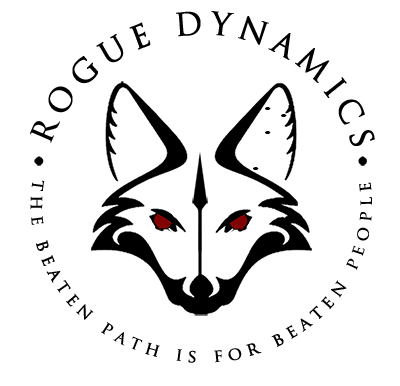
THE ENGINE THAT THOUGHT IT COULD... (BEING JEWISH IN A POST 9/11 WORLD)
In a certain railroad yard stands an extremely long and heavy train that has to be drawn up an unusually heavy grade to reach its destination. The superintendent of the yard is not sure what to do. He goes to the largest and strongest engine and asks: "Can you pull that train over the hill?
"It is a very heavy train," responds one engine.
He then goes to another powerful engine and asks: "Can you pull that train over the hill?"
"It is a very steep grade," it replies.
The superintendent is puzzled, but he turns to the only other available engine. It is spick and span and hasn’t pulled a load yet. The supervisor asks it "Can you pull that train over the hill?"

"I think I can," responds the clean engine.
So the order is circulated, and the engine gets itself into position for its first coupling. As it approaches the cars, the engine keeps repeating to itself "I think I can. I think I can. I think I can."
The coupling is made and the engine begins its journey heading toward the steep hill. As it rolls it again repeats: "I ---think ---I can. I ---think ---I--- can. I ---think--- I ---can."
The engine reaches the grade and its voice can still be heard from the depot "I think I can. I----- think-----I-----can. I -----think----- I----- can." Higher and higher it climbs, and its voice grew fainter from the perspective of the depot and its words become slower: "I -------think --------I-------can."
It was almost to the top.
“I ---------think"
It reaches the top.
"I ---------can."
It passes over the top of the hill and begins crawling down the opposite slope.
'I ------think------- I------ can------I----- thought------I-------could I----- thought----- I----- could. I thought I could. I thought I could. I thought I could."
And singing its triumph, it continues on down toward the valley.
This is the proto version of the famous children’s story book “the Little Engine that Could.” It was published, for all ages in the New York Tribune in 1906 under the byline of Rev. Charles Wing. Regardless of which version you read, the main lesson is that positive thinking is very powerful. Positive thinking can help us overcome obstacles in the face of difficult challenges. The children’s version refines the lesson a little more and adds the idea that even someone who is seemingly inadequate for the task, can achieve success with the power of positive thinking and more importantly, presence. If you think you can’t then you won’t. As I was asked to write about a Jewish perspective in a Post-9/11 world, I keep coming back to the idea of a call to action, a call of doing, a call of presence.
“Then the word of the Lord came to Jonah son of Amittai, saying: Go at once to Nineveh, that great city, and proclaim judgement upon it, for their wickedness has come before Me. Jonah, however, started out to flee to Tarshish from the Lord’s service.” –book of Jonah.
To be fair, I am a scientist by nature, culture, study, and faith. I turn to scripture as stories or commentary to what I explore in my duties as a professor, teacher, and community member. I see that Jonah flees from G-D because he has personal doubts about his presence, acting on behalf of G-D. I imagine Jonah wondering if he has the proper skills to speak out in public. Or in today’s world, speak out on social media in the face of injustice, hate, memes, cruelty, or hypocrisy. He is afraid to fail. Instead of confronting these fears and hardships, he flees. I often am afraid to fail. I often stay silent feeling that my presence on social media can little impact. The negative power of “I can’t” is so strong it makes you think you can even flee from your omnipresent G-D or the duties or oaths of a sworn position. Self-doubt, fear of failure and a desire to avoid and flee from seemingly difficult or even impossible situations are familiar feelings to many if not most of us. In your replies, I would like to explore how we can help ourselves refrain from harsh self-judgments, judgments of others, and have a more positive outlook for what America is, can be, and who we are as human beings. How “Going Rogue” can mean “I think I can?” 15 years post 9/11, I find myself turning to Torah to resolve internal tensions, uncomfortable with the direction of politics, the adoption of people calling themselves “GreyMen” while chiding the intellectual and espousing socio-economic-political views that are black & white.

The book of Jonah concludes with the lesson of the shady plant. G-D sends a heat wave. On the first day there is a beautiful shade tree giving Jonah relief from the sun. G-D sends a worm to destroy the tree leaving Jonah exposed. Jonah is greatly vexed. G-D asks Jonah if he has compassion for the plant. Jonah answers yes. Jonah didn’t create or cultivate the plant, yet he has compassion and cares for its well-being. Even more so, G-D has compassion on us whom G-D created and cares for. If you believe, G-D is compassionate and merciful toward us, we should be compassionate and merciful toward others and ourselves. If you don’t believe in a higher power, the same applies as we might find ourselves being, Jonah, the plant, the sun, or in a position of power to offer possibility to someone or a culture in need.
Over the summer, A Rabbinical colleague of mine read a book titled “The Art of Possibility” written by a husband and wife team Rosamund Stone Zander, a family therapist and Benjamin Zander, a long-time conductor of the Boston Philharmonic Orchestra and master music instructor. He discussed with me how the authors suggest that we generally spend too much time and effort living and operating in what they call the ‘world of measurement.’ We are constantly measuring ourselves either in comparison to others or to some subjectively ideal goal or benchmark. While there is certainly need and value to measure things, the world of measurement can be overly competitive, limiting, and world where there always needs to be winners and losers. What struck me once I read the book, was how the authors posit an alternative world, which they call the “world of possibility.” This world, in their words, is “infinite, generative, abundant and freeing.” In the world of possibility, we gain knowledge through invention and imagination and our self-worth comes from our relationships and not from measurable acts of openness, putting one’s self first, or a demonstration of how much we know and achieve. The world of measurement often tells us what we can’t do. For example, we might say it is impossible for one person to create systemic change.
The world of possibility challenges us to ask ‘how might this person lead a movement? The answer is that living in a post 9/11 world of activism if done properly, uses one’s voice as a fulcrum and then lifts others voices, then many people can actually cause change.
The book also shares a beautiful parable, one that reminds me of the time I spend online in the Rogue’s Den or at least what I hope for the space. I am not sure if its Jewish or Christian in origin. It doesn’t matter. A once great monastery has fallen on hard times through religious persecution. It is left with five aging monks, the Abbot and four others. A rabbi from a nearby town sometimes retreats to hut next to the monastery. On occasion the Abbot and the rabbi study together. One, the Abbot, asks the rabbi for advice for how the save the monastery. The rabbi replies “I have no advice to give. The only thing I can tell you is that the Messiah is one of you.” The five monks contemplate the rabbi’s words “the Messiah is one of us,” Indeed one of us is the king messiah but we don’t know which one. These monks are in the world of possibility. Every person they interact with, even themselves could be the Messiah. So they begin treating each with the honor and holiness due the king messiah. Their new demeanors create a palatable aura of holiness sensed by the occasional visitors to the Abbey. The visitors start coming more frequently and bring friends. Soon new monks join the Order itself and the community becomes vibrant again, in ways other communities no longer serve or seem. The engine that thought it could, “Going Rogue,” and the Rogue’s Den all point to the power of positive thinking. The more we focus on what is possible for us and for others the farther we get away from self-doubt and the closer we get to being our best selves.

text: Daniel Schwiber, 2011; Rev. Charles Wing, 1906, Rosamund and Benjamin Zander, 2000
images: Platt & Munk, Little Engine, 1930; Josh Thomas, Jonah & the Bush, 2016; owl of Athena, 420 BC ; Eduardo Recife, Where did hope go, 2004; David Gahr, I beleive in my mask, 1971



